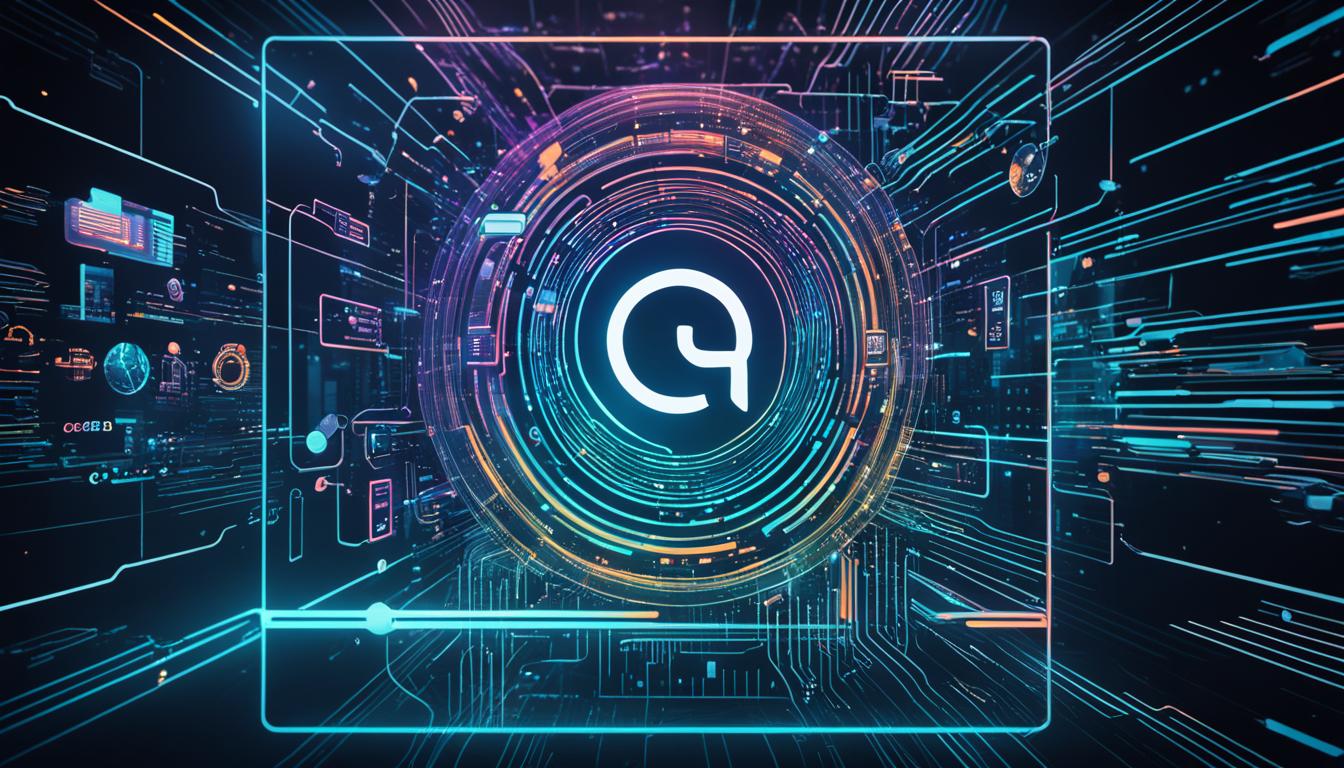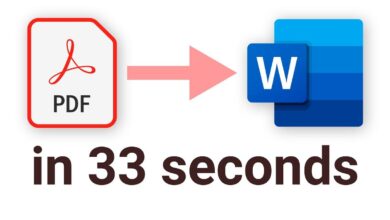OpenAI GitHub Projects | Explore Cutting-Edge AI Code

OpenAI GitHub is a treasure trove of cutting-edge AI projects and code repositories. With over 10,000 public repositories, developers like you can explore and collaborate on advanced machine learning projects. From language models and audio processing to software development and AI techniques, OpenAI GitHub offers a wide range of opportunities for AI enthusiasts to dive into the world of artificial intelligence.
Key Takeaways:
- Explore and collaborate on cutting-edge AI projects on OpenAI GitHub.
- Discover a wide range of AI repositories, covering language models, audio processing, and more.
- Join a global community of AI enthusiasts and contribute to existing projects.
- Stay up-to-date with the latest updates and features on OpenAI GitHub.
- Leverage OpenAI’s powerful models and libraries to enhance your own projects.
Exciting AI Repositories on OpenAI GitHub
OpenAI GitHub is a hub of diverse AI repositories that showcase innovative projects, cutting-edge AI models, and valuable AI code. Here are some of the most exciting AI repositories you can explore:
1. GPT-3 Showcase
The GPT-3 Showcase repository is a treasure trove of applications and demonstrations that leverage the power of OpenAI’s GPT-3 language model. From chatbots and text generation to question-answering systems, this repository provides practical examples and code snippets to help you harness the capabilities of GPT-3 in your own projects.
2. StyleGAN2
The StyleGAN2 repository features an impressive implementation of the StyleGAN2 model, which is widely used for generating realistic images. Explore the code to learn how to generate stunning images, create artistic designs, or even train your own generator model using advanced techniques for image synthesis.
3. MuseNet
MuseNet is an AI music generation model developed by OpenAI. The MuseNet repository provides access to the code and pre-trained models, allowing you to compose original music, experiment with different styles, and explore the possibilities of AI-assisted music creation.
4. DALL-E
DALL-E is a groundbreaking AI model capable of generating unique images from textual descriptions. In the DALL-E repository, you can delve into the code and examples to understand how this model works and discover the fascinating potential of AI in image creation and manipulation.

5. Gym
Gym is an open-source toolkit for developing and comparing reinforcement learning algorithms. The Gym repository on OpenAI GitHub offers a collection of environments and resources to help you build and benchmark your own reinforcement learning agents, making it a valuable resource for AI researchers and enthusiasts.
These are just a few examples of the exciting AI repositories you can find on OpenAI GitHub. By exploring these projects, you can gain insights, learn new techniques, and contribute to the thriving AI community.
Collaboration and Community on OpenAI GitHub
OpenAI GitHub is not just a platform for hosting AI code repositories. It also fosters collaboration and community engagement. Developers can contribute to existing projects, participate in discussions, and even start their own projects.
The GitHub features, such as issue tracking, pull requests, and code reviews, enable seamless collaboration among developers. With a global community of AI enthusiasts, OpenAI GitHub provides a supportive environment for knowledge sharing and innovation.
“OpenAI GitHub allows us to collaborate effortlessly on AI projects. The community involvement is incredible, and the feedback and insights from fellow developers are often invaluable. It’s a place where ideas are shared, refined, and turned into impactful applications.”
Contributing to Existing Projects
OpenAI GitHub offers developers the opportunity to make contributions to existing projects. By cloning a repository, making code changes, and submitting a pull request, you can offer improvements or new features to the project. Collaborating with other developers in this way allows for the sharing of knowledge, expertise, and ideas.
Participating in Discussions
The OpenAI GitHub community provides a platform for engaging in discussions related to AI projects. By participating in discussions, you can ask questions, offer suggestions, and gain insights from other developers. These discussions not only contribute to the improvement of projects but also create a space for learning and collaboration.
Starting Your Own Projects
OpenAI GitHub encourages developers to start their own AI projects. By creating a new repository, you can showcase your work, collaborate with others, and receive feedback from the community. This creates opportunities for innovation, experimentation, and the development of cutting-edge AI applications.

| GitHub Features | Benefits |
|---|---|
| Issue Tracking | Efficiently manage and address project-related issues |
| Pull Requests | Enable collaborative code review and seamless integration of new features |
| Code Reviews | Promote high-quality code and provide constructive feedback to project contributors |
The collaborative nature of OpenAI GitHub, combined with its powerful features, cultivates a dynamic environment that fuels innovation and advances the field of AI. Developers can leverage the platform to connect with like-minded individuals, contribute to impactful projects, and push the boundaries of AI technology.
Latest Updates and Features on OpenAI GitHub
OpenAI GitHub is a dynamic platform that constantly introduces new updates and features to enhance the user experience and provide cutting-edge advancements in artificial intelligence. By staying up-to-date with the latest releases and enhancements, developers can harness the full potential of OpenAI’s resources and contribute to the evolution of AI projects.
To keep track of the latest updates and features, it is recommended to follow OpenAI’s official GitHub repository. By doing so, you gain access to bug fixes, performance improvements, and exciting new features that can accelerate the development of your own projects. OpenAI maintains a vibrant community on GitHub, encouraging collaborative efforts and fostering a spirit of innovation.
OpenAI GitHub is a hub of creativity and collaboration, where developers can actively engage with the latest enhancements and contribute to the improvement of existing projects.
OpenAI GitHub also welcomes feedback and suggestions from developers for further improvement of the projects. This enables the community to come together and collectively refine the code, models, and techniques. By actively participating in discussions and providing valuable input, you can play a significant role in shaping the future of AI development and contribute to the growth of the OpenAI GitHub community.
Benefits of Staying Updated:
- Access to the most recent bug fixes and performance improvements.
- Exploration of new features that can enhance your AI projects.
- Opportunity to collaborate with like-minded developers.
- Contribution to the improvement and innovation of AI projects.
OpenAI GitHub’s commitment to constant improvement ensures that developers have access to the latest advancements in AI. By incorporating these updates and features into your projects, you can push the boundaries of what AI can accomplish.

Key Updates and Features on OpenAI GitHub
| Release | Features |
|---|---|
| Release 1.0 | New language model with enhanced accuracy and performance |
| Release 2.0 | Improved audio processing capabilities for speech recognition |
| Release 3.0 | Expanded support for computer vision tasks and image analysis |
| Release 4.0 | Intelligent code completion for software development projects |
These updates are indicative of the ongoing commitment by OpenAI GitHub to deliver powerful tools and frameworks that empower developers to create innovative AI applications and solutions. By taking advantage of the latest updates and features, you can unlock new possibilities and drive AI development to new heights.
Leveraging OpenAI on GitHub
OpenAI’s models and libraries are invaluable resources for enhancing your GitHub projects with advanced AI capabilities. By seamlessly integrating OpenAI’s language models, audio processing techniques, and other AI functionalities into your projects, you can unlock new possibilities and push the boundaries of AI innovation.
With OpenAI GitHub, developers have access to code examples, documentation, and resources that facilitate the integration process. These tools empower you to leverage OpenAI’s powerful APIs and pre-trained models, enabling you to create intelligent applications, automate tasks, and explore the realm of artificial intelligence.
Integrating OpenAI Libraries
To integrate OpenAI libraries into your GitHub projects, follow these simple steps:
- Clone or download the desired OpenAI library from the official OpenAI GitHub repository.
- Add the library to your project’s dependencies or include it in your code directly.
- Follow the provided documentation and code examples to utilize the library’s functionalities and achieve your desired AI outcomes.
Using OpenAI APIs
OpenAI provides a set of powerful APIs that allow you to tap into the potential of their vast language models and AI capabilities. To integrate OpenAI APIs into your GitHub projects, the following steps can be followed:
- Get your API credentials from OpenAI by signing up for an account and generating an API key.
- Import the necessary libraries and packages in your GitHub project.
- Utilize the OpenAI API endpoints and methods to make requests and receive responses for tasks such as text generation, sentiment analysis, and language translation.
Exploring Documentation and Resources
To facilitate the integration process and support developers, OpenAI GitHub provides comprehensive documentation and resources. These include:
- README files with detailed instructions and usage examples.
- Issue tracking to report bugs, suggest improvements, and seek community support.
- Code snippets and sample projects demonstrating best practices and showcasing the capabilities of OpenAI’s models and libraries.
“GitHub integration allows developers to harness the power of OpenAI’s cutting-edge AI models and libraries, enabling them to create intelligent applications and explore the vast possibilities of artificial intelligence.” – OpenAI
By leveraging OpenAI on GitHub, you can accelerate your AI development and tap into the collective knowledge and expertise of the global open-source community. OpenAI GitHub offers a collaborative space where developers can share ideas, contribute to existing projects, and embark on new AI ventures together.
| Benefits of OpenAI Integration on GitHub | Examples |
|---|---|
| Enhance natural language processing capabilities | Chatbot frameworks, sentiment analysis models |
| Improve computer vision tasks | Image recognition systems, object detection models |
| Optimize audio processing techniques | Speech recognition models, audio synthesis frameworks |
| Create personalized recommendation systems | Movie recommendations, product recommendation engines |
By incorporating OpenAI’s cutting-edge AI models and libraries into your GitHub projects, you can unlock a world of possibilities and revolutionize the way you build intelligent applications.

Top AI Repositories on OpenAI GitHub
OpenAI GitHub is home to numerous cutting-edge AI projects and repositories. Here are some of the top trending repositories that showcase the latest advancements in artificial intelligence:
| Repository | Description | Stars |
|---|---|---|
| 1. GPT-3 Playground | A web-based interface to interact with the powerful GPT-3 language model. | 7,431 |
| 2. DALL·E | An AI system capable of generating images from textual descriptions, pushing the boundaries of creative art. | 5,892 |
| 3. CLIP | A Contrastive Language-Image Pretraining model that understands images and text together, achieving impressive results in zero-shot learning. | 4,912 |
| 4. ChatGPT | A conversational AI model that allows developers to build chatbot applications. | 3,782 |
| 5. Spinning Up in Deep RL | A collection of code examples and tutorials for learning reinforcement learning techniques. | 3,245 |
These repositories represent just a fraction of the exciting AI projects available on OpenAI GitHub. By exploring these cutting-edge repositories, you can gain insights into the latest AI trends, techniques, and advancements.
Start exploring these repositories on OpenAI GitHub today to stay at the forefront of the AI revolution and discover innovative solutions in the field.
Exploring AI Applications on OpenAI GitHub
OpenAI GitHub is a hub for developers to explore a wide range of AI applications. Within the platform, you can find numerous projects dedicated to various fields, including natural language processing, computer vision, audio processing, and more. These projects offer invaluable insights and inspiration for developers looking to incorporate AI into their own projects.
For example, if you’re interested in creating chatbots, OpenAI GitHub provides projects with advanced language models and dialogue systems that can help you develop intelligent conversational agents. Additionally, there are projects focused on image recognition systems, offering algorithms and pre-trained models to enhance your computer vision applications.
Moreover, OpenAI GitHub hosts projects related to music generation models, allowing you to explore the possibilities of AI-driven music composition and audio processing. By diving into these projects, you can gain valuable knowledge and discover innovative approaches to apply AI in your own creations.
Developers on OpenAI GitHub have the opportunity to learn from and contribute to projects that cover a diverse range of AI applications. It’s a vibrant ecosystem where you can explore cutting-edge solutions and collaborate with like-minded individuals. By leveraging the possibilities offered by OpenAI GitHub, you can take your AI projects to new heights.
Benefits of exploring AI applications on OpenAI GitHub:
- Diverse range of projects: OpenAI GitHub offers a vast collection of projects covering various AI applications, providing ample opportunities for exploration and learning.
- Knowledge sharing: By engaging with the projects and the OpenAI GitHub community, developers can share knowledge, insights, and best practices in the field of AI.
- Inspiration for innovation: Exploring these projects can inspire you to think creatively and push the boundaries of AI in your own projects, leading to innovative and groundbreaking solutions.
- Collaboration opportunities: OpenAI GitHub facilitates collaboration among developers worldwide, enabling you to work together on exciting AI applications and create meaningful contributions to the field.
With OpenAI GitHub, the possibilities are endless when it comes to exploring and developing AI applications. Discover the potential of AI across different domains and leverage the rich resources available on OpenAI GitHub to fuel your own AI projects.
“OpenAI GitHub is like a treasure trove of AI applications waiting to be explored. With projects ranging from smart assistants to image recognition systems, there’s something here for every AI enthusiast.”
| Application | Description |
|---|---|
| Chatbots | Projects focused on developing conversational agents with advanced language models and dialogue systems. |
| Computer Vision | Repositories containing algorithms and pre-trained models for image recognition systems and computer vision applications. |
| Music Generation | Projects exploring AI-driven music composition and audio processing techniques to create unique musical pieces. |
OpenAI GitHub for AI Enthusiasts
OpenAI GitHub is an invaluable resource for AI enthusiasts who are eager to learn and explore the world of artificial intelligence. By studying the code, documentation, and discussions in the repositories, you can gain insights into AI models, algorithms, and best practices.
OpenAI GitHub provides a platform for enthusiasts like yourself to connect with like-minded individuals, share your knowledge, and collaborate on exciting AI projects. Whether you’re just starting out or an experienced AI practitioner, OpenAI GitHub offers a wealth of resources to enhance your understanding and skills in the field.
Here are some key reasons why OpenAI GitHub is a must-visit for AI enthusiasts:
1. Learning AI through Code
The repositories on OpenAI GitHub provide a treasure trove of code snippets, examples, and complete projects that you can study and learn from. By examining the code written by experts in the field, you can gain practical insights into implementing machine learning techniques, working with AI models, and understanding the inner workings of advanced algorithms.
2. Best Practices and Documentation
OpenAI GitHub is not just about code. It also offers valuable documentation and best practices that can guide you in your AI journey. From getting started guides to detailed documentation on specific AI models or techniques, OpenAI GitHub provides comprehensive resources to help you navigate the complexities of artificial intelligence.
3. Collaboration and Networking
One of the greatest advantages of OpenAI GitHub is the ability to collaborate with other AI enthusiasts from around the world. By contributing to existing projects, participating in discussions, and starting your own projects, you can connect with like-minded individuals and build a network of peers who share your passion for AI.
“OpenAI GitHub provides a platform for enthusiasts to connect with like-minded individuals, share their knowledge, and collaborate on exciting AI projects.”
4. Access to Cutting-Edge Projects
OpenAI GitHub is a hub for groundbreaking AI projects that push the boundaries of what is possible. By exploring the repositories, you can discover the latest advancements in natural language processing, computer vision, and other AI subfields. These projects serve as a source of inspiration and provide invaluable insights into the advancements shaping the AI landscape.
5. Resources for Beginners and Experts
Whether you’re a beginner taking your first steps in AI or an experienced practitioner looking to expand your knowledge, OpenAI GitHub caters to all levels of expertise. You can find introductory tutorials, advanced research papers, and everything in between to ensure continuous learning and growth on your AI journey.
With its vast collection of AI resources, OpenAI GitHub empowers you to delve into the world of artificial intelligence, learn from the best, collaborate with peers, and stay at the forefront of AI advancements.
Explore OpenAI GitHub today and unlock the endless possibilities of AI.
Conclusion
OpenAI GitHub is the ultimate destination for AI enthusiasts and developers seeking innovation and collaboration in the field of artificial intelligence. With its vast collection of AI repositories, this platform offers a unique opportunity to explore cutting-edge projects and stay ahead of the curve.
By participating in the global AI community on OpenAI GitHub, you can collaborate with like-minded individuals, share knowledge, and contribute to existing projects. The platform’s powerful models and libraries enable you to leverage OpenAI’s expertise and take your own projects to new heights. There are endless possibilities to learn, create, and inspire others in this thriving ecosystem.
Whether you’re a seasoned professional looking to push the boundaries of AI or a beginner eager to learn and develop your skills, OpenAI GitHub provides a wealth of resources and support. From contributing to open-source projects to starting your own AI venture, there is something for everyone. So don’t hesitate – dive into OpenAI GitHub today and unlock your full potential in the exciting realm of AI.
FAQ
What can I find on OpenAI GitHub?
OpenAI GitHub is a treasure trove of cutting-edge AI projects and code repositories. You can explore and collaborate on advanced machine learning projects, ranging from language models and audio processing to software development and AI techniques.
How can I collaborate on OpenAI GitHub?
OpenAI GitHub fosters collaboration and community engagement. You can contribute to existing projects, participate in discussions, and even start your own projects. GitHub features like issue tracking, pull requests, and code reviews enable seamless collaboration among developers.
How can I stay updated with OpenAI GitHub?
You can stay up-to-date with the latest releases and enhancements by following OpenAI’s official GitHub repository. OpenAI GitHub constantly evolves with new updates and features, including bug fixes, performance improvements, and new features for existing projects.
Can I integrate OpenAI models and libraries into my GitHub projects?
Yes, you can seamlessly integrate OpenAI’s models and libraries into your GitHub projects. By leveraging the power of OpenAI’s language models, audio processing techniques, and other AI functionalities, you can enhance your own projects and create intelligent applications.
What kind of AI applications can I find on OpenAI GitHub?
OpenAI GitHub offers a hub for exploring various AI applications. You can find projects dedicated to natural language processing, computer vision, audio processing, and more. These projects cover areas such as chatbot creation, image recognition systems, music generation models, and more.
How can OpenAI GitHub benefit AI enthusiasts?
OpenAI GitHub is an invaluable resource for AI enthusiasts. By studying the code, documentation, and discussions in the repositories, enthusiasts can gain insights into AI models, algorithms, and best practices. It provides a platform for enthusiasts to connect with like-minded individuals, share knowledge, and collaborate on exciting AI projects.
Is OpenAI GitHub suitable for both beginners and experienced AI practitioners?
Yes, OpenAI GitHub caters to both beginners and experienced AI practitioners. It offers a wealth of resources to enhance understanding and skills in the field of AI. Whether you’re starting your AI journey or looking for advanced projects, OpenAI GitHub has something for everyone.




